Presentations
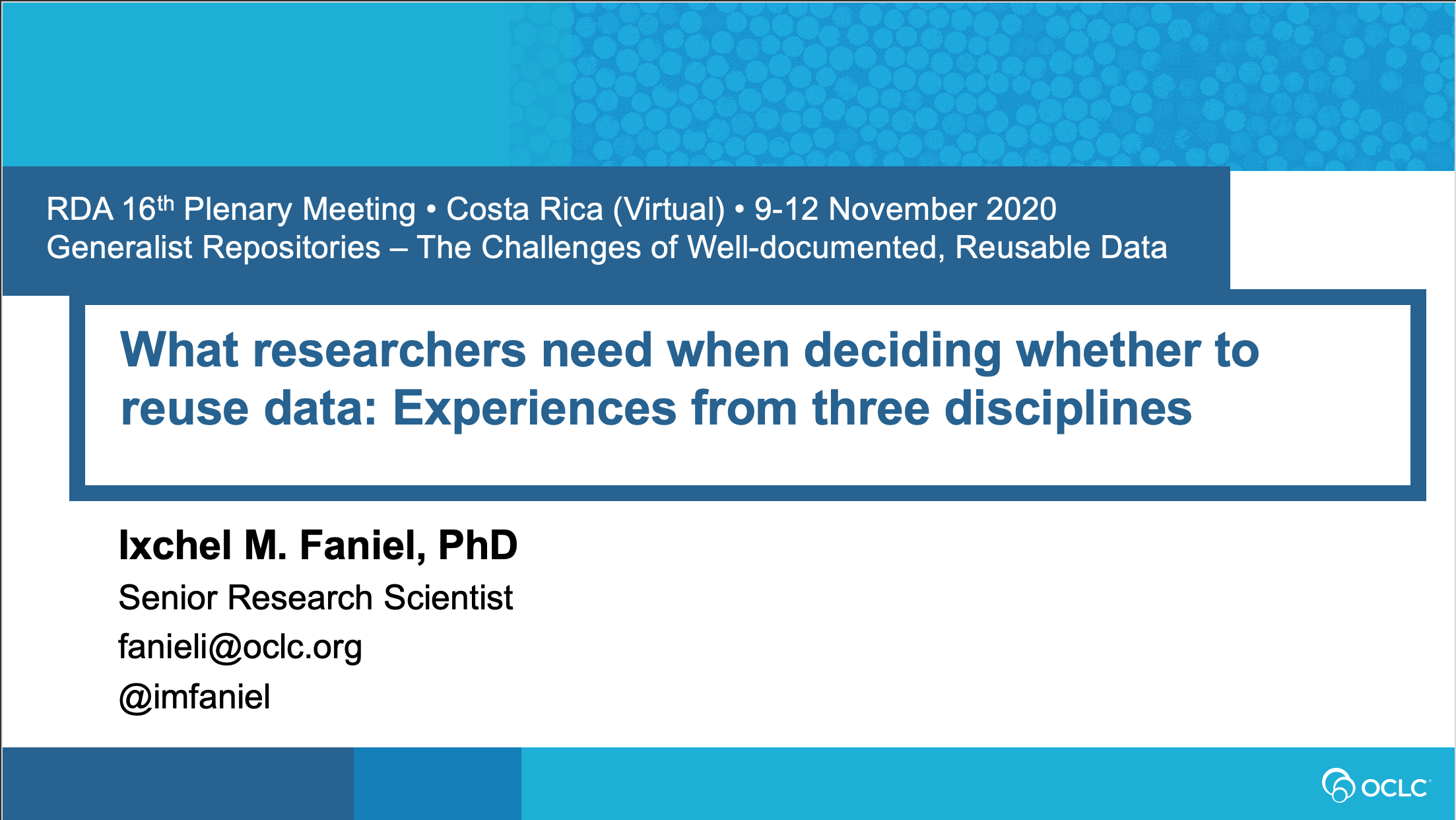
What researchers need when deciding whether to reuse data: Experiences from three disciplines
virtual
When researchers are deciding whether to reuse data, they need information about data’s context of production from a variety of sources such that data’s quality can be evaluated. This panel presentation compares the different types of context, sources, and data quality attributes quantitative social scientists, zoologists, and archaeologists mentioned needing during interviews and observations about their data reuse.
Topics: Research Data Management, User Research
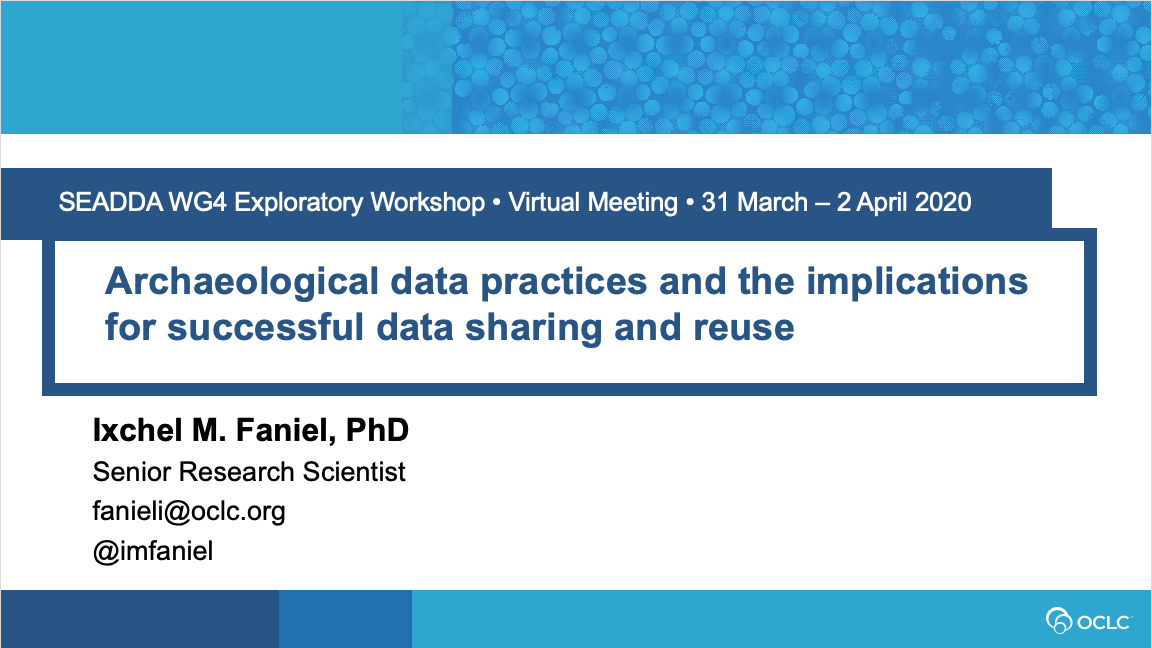
Archaeological data practices and the implications for successful data sharing and reuse
virtual
In this keynote presentation, Ixchel M. Faniel discusses findings from several studies examining archaeological data practices and needs and the implications for successful data sharing and reuse.
Keynote recording available from SEADDA.
Topics: User Research, Research Data Management, SLO-Data
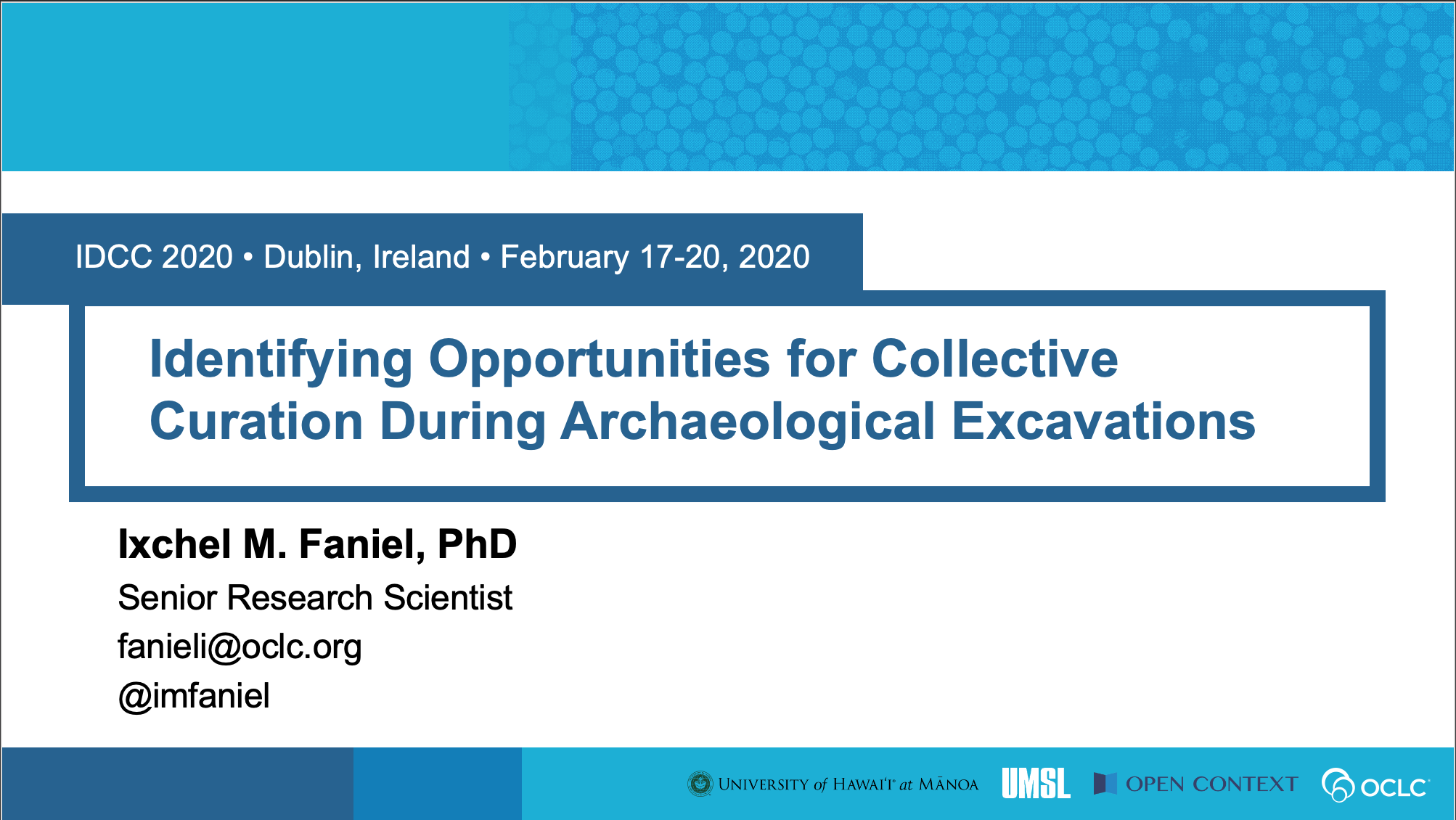
Identifying Opportunities for Collective Curation During Archaeological Excavations
Dublin, Ireland
Archaeological excavations are comprised of interdisciplinary teams that create, manage, and share data as they unearth and analyze material culture. These team-based settings are ripe for collective curation, particularly among the excavation teams responsible for unearthing the materials and the specialists responsible for analysing them. Yet, findings from a study of four excavation sites show specialist data tend to remain unlinked and decontextualized from excavation data. This presentation highlights findings from the study, opportunities identified for collective curation, and responses from the four excavation projects.
Topics: Research Data Management, User Research, SLO-Data
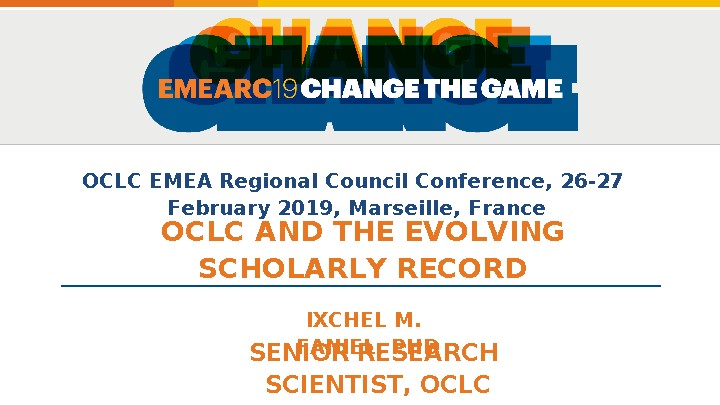
OCLC and the Evolving Scholarly Record
Marseille (France)
Ixchel M. Faniel explores the contours of the evolving scholarly record, including stakeholders, stewardship, conscious coordination, and the "inside out library."
Topics: Evolving Scholarly Record, Research Data Management, Research Information Management, User Research
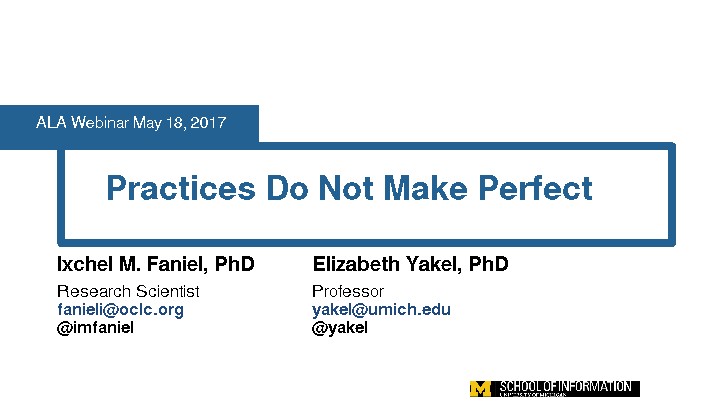
Practices Do Not Make Perfect
Virtual
Faniel details the Dissemination Information Packages for Information Reuse (DIPIR) research project, including research methods, findings, and implications.
Topics: Research Data Management, User Research
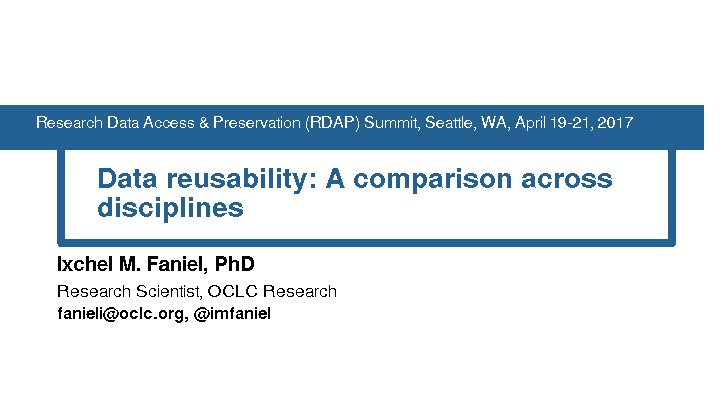
Data Reusability: A Comparison Across Disciplines
Seattle, Washington (USA)
Using examples from the Dissemination Information Packages for Information Reuse (DIPIR) project, Faniel presents on confluence and disparities of researchers’ data reuse needs.
Topics: Research Data Management, User Research
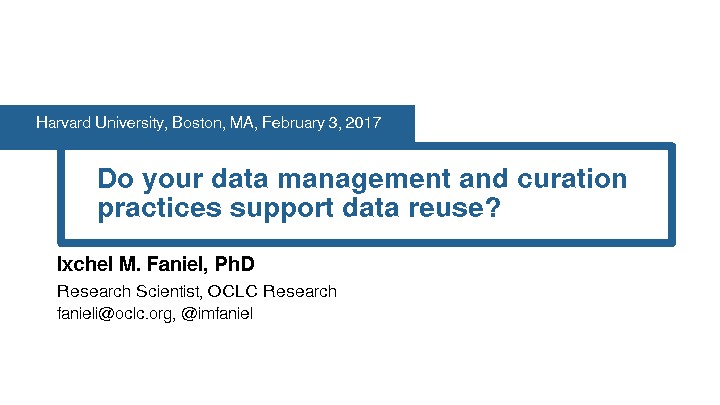
Do Your Data Management and Curation Practices Support Data Reuse?
Cambridge, Massachusetts (USA)
In this presentation, Faniel introduces the concepts of data management and data curation for archaeology in the context of optimizing for data reuse.
Topics: Research Data Management, User Research